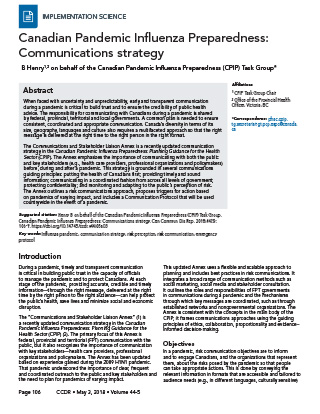
Effective Strategies for Pandemic Readiness
The ongoing challenges posed by pandemics highlight the crucial need for proactive and effective strategies to ensure readiness. As the world grapples with infectious diseases, implementing robust pandemic readiness strategies becomes imperative. Let’s explore key approaches that contribute to a resilient and prepared global response.
Integrated Healthcare Systems
Pandemic preparedness begins with building integrated healthcare systems. Collaborative efforts among healthcare providers, governmental agencies, and international organizations facilitate a seamless flow of information, resources, and expertise. This integration ensures a coordinated response when faced with the complexities of a pandemic, enhancing overall readiness.
Early Warning Systems and Surveillance
Implementing early warning systems and surveillance mechanisms is pivotal for timely response. Continuous monitoring of disease patterns, international cooperation on data sharing, and investment in advanced surveillance technologies contribute to the early detection of potential threats. These strategies enable swift action to contain the spread of infectious diseases.
Robust Vaccine Development and Distribution
A cornerstone of pandemic readiness is the development and distribution of vaccines. Investing in research, supporting innovative vaccine technologies, and establishing efficient distribution channels are essential components. Timely access to vaccines for both preventive and therapeutic purposes is critical for managing the impact of a pandemic.
Strategic Stockpiling of Medical Resources
Building and maintaining strategic stockpiles of medical resources is a proactive measure. This includes stockpiling personal protective equipment (PPE), antiviral medications, and essential medical supplies. Such preparations ensure that healthcare systems have the necessary resources to respond promptly to surges in demand during a pandemic.
Flexible Healthcare Infrastructure
A flexible healthcare infrastructure is key to adapting to the dynamic nature of pandemics. Hospitals and healthcare facilities need the capacity to scale up operations rapidly, accommodate increased patient loads, and implement effective isolation measures. Flexibility in healthcare delivery models, such as telemedicine, also enhances overall resilience.
Community Education and Engagement
Empowering communities through education and engagement is fundamental for pandemic readiness. Well-informed communities are better equipped to follow preventive measures, identify symptoms, and seek timely medical assistance. Community engagement initiatives foster a sense of shared responsibility, creating a unified front against the spread of infectious diseases.
Cross-Sectoral Collaboration
Pandemic readiness extends beyond the healthcare sector. Collaborative efforts across various sectors, including government, industry, and education, strengthen overall resilience. By fostering cross-sectoral collaboration, societies can leverage diverse resources and expertise to address the multifaceted challenges presented by pandemics.
Global Coordination and Cooperation
In an interconnected world, global coordination and cooperation are indispensable. International collaboration on research, resource sharing, and crisis response mechanisms enhance the collective ability to manage pandemics. Coordinated efforts on a global scale contribute to a more effective and equitable pandemic response.
Adaptive Public Health Policies
Adapting public health policies to evolving circumstances is crucial for effective pandemic readiness. Policies should be agile, responsive, and evidence-based. Regular reviews and updates ensure that public health measures align with the latest scientific understanding and the specific characteristics of the ongoing pandemic.
Pandemic Readiness Strategies for a Sustainable Future
To achieve a sustainable and resilient future, it is essential to prioritize and implement comprehensive pandemic readiness strategies. Explore more about these strategies at Pandemic Readiness Strategies. By combining integrated healthcare, early warning systems, vaccine development, strategic stockpiling, flexible infrastructure, community engagement, cross-sectoral collaboration, global cooperation, and adaptive policies, we can build a world better prepared to face the challenges of pandemics head-on.
